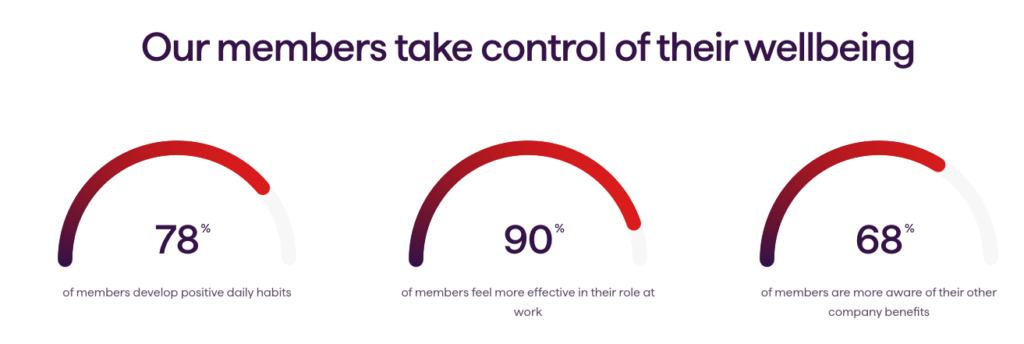Meet the workplace phenomenon: Rust-out.
Some are saying rust-out is burnout’s bored, disengaged cousin.
We call it the “productivity killer”.
What is rust-out?
Although the term “Rust-out” isn’t new, employers are starting to see it dominate their workforce.
Rust-out occurs when employees are bored, unengaged, and aren’t fulfilled in their jobs.
You’ve probably seen it before.
Maybe someone is hunched over in their chair, scrolling their phone, and not focusing as much as they were.
Or maybe you’ve noticed an employee that’s missing deadlines, not getting involved in meetings, or seem reserved in group settings.
You may already be familiar with “presenteeism”, where employees show up to work but don’t give their full potential. They show up every day, but do very little.
Presenteeism, burnout, and rust-out are all related. But there are differences to be aware of.
While burnout creeps up gradually due to mounting stress, rust-out can occur suddenly when an employee plateaus in their role and becomes unengaged.
If unaddressed, rust-out can lead to decreased performance, high turnover, and wasted talent.
Remember:
Burnout = exhaustion created by work too much
Rust-out = diminished interest, unengaged, and the “can’t be bothered” attitude
The main signs of rust-out include:
- Feeling bored, apathetic, and unmotivated
- Lacking passion and excitement about work
- Experiencing restlessness and eagerness for change
- Struggling to focus and concentrate – easily distracted
- Procrastinating on tasks
- Withdrawing from social interactions
What are the top drivers of rust-out?
Employees experiencing rust-out feel they have plateaued and have no opportunities for development or career progression.
Specifically, the causes of rust-out include:
- Lack of challenge: Employees feel their day-to-day work is monotonous and unstimulating. They are going about their daily routine without being intellectually challenged.
- Feeling stuck in a role: Employees feel trapped in their current position with no opportunity for promotion or transfer to new teams. The role has lost its sense of purpose.
- Lack of vision: A lack of vision hinders an employee’s ability to set achievable goals and see a meaningful path for growth and development. Without a clear destination, it becomes difficult for employees to feel a sense of progress or accomplishment.
What rust-out means for businesses
Impact on employers:
Rust-out can have major negative consequences for businesses.
Employees experiencing rust-out are more likely to leave the company, resulting in increased turnover costs from recruiting and training new hires.
Rust-out also stifles creativity and innovation. Unengaged employees are unlikely to come up with new ideas or solutions. Unsurprisingly, this can hugely impact your competitiveness, your marketing, and ultimately, your pipeline.
How HR can prevent rust-out at work
It’s important to tread carefully with rust-out. Sometimes, people have off days/weeks. Or maybe employees are dealing with personal issues.
But, if you suspect someone is displaying continuous symptoms of rust-out, here are some proactive steps you can take to prevent rust-out:
- Hold development conversations : Review what you already have in place and analyse how often you’re meeting with your people to discuss progression. Offer training, mentorship programmes, and opportunities to learn new skills. This stimulates the mind and prevents stagnation. Don’t have L&D budget? Try and host “Lunch & Learns” or create a culture of continuous feedback to help engage your employees.
- Explore what excites your people: A great way to do this is to spark up conversations over a coffee break or send out a quick survey to see what your workforce is passionate about. Some may be runners, others may be gamers, or bakers. Analyse your results and plan some fun activities that’ll get your people engaged.
- Evaluate workloads: Ensure workloads are reasonable and allow for a healthy work-life balance. Overburdening causes fatigue and disengagement, but not having enough tasks, means they’ll get bored quickly.
- Focus on improving workplace wellbeing: When you demonstrate care and support for your employees’ physical and mental health, it keeps them engaged and motivated. By providing resources and initiatives that promote work-life balance, stress reduction, and personal development, employees feel valued, challenged, and excited about their work.
- Encourage career flexibility: If an employee is bored with their day-to-day tasks, you could allow employees to shadow other internal roles and departments periodically. This breaks up monotony and provides fresh challenges.

At Virgin Pulse, we help 1000s of global businesses every day, all year round, prevent rust-out. Our health & wellbeing platform, provides members with wellbeing advice, tips, and resources that’s completely unique to their needs.
Want to see Virgin Pulse in action?
Get a FREE 1:1 demo of our health & wellbeing platform, and we’ll show you why 1000s of global businesses use Virgin Pulse to prevent rust-out.
